“I enjoy it,” says Reece. “It keeps me fit, gets me out of the house and I like meeting up with the others twice a week.”
“What position do you play?” I ask.
“Midfield.”
“So you feed the strikers?” I ask, pretending I know what I’m talking about.
“You’ve got a good engine on you, haven’t you?” says North Manchester Athletics FC coach, Jordan Ryan. “He goes from box to box.”
“And what would you be doing on a Tuesday night if you weren’t football training?” I ask the 23-year-old.
“I’d just be sat at home watching telly, I suppose.”
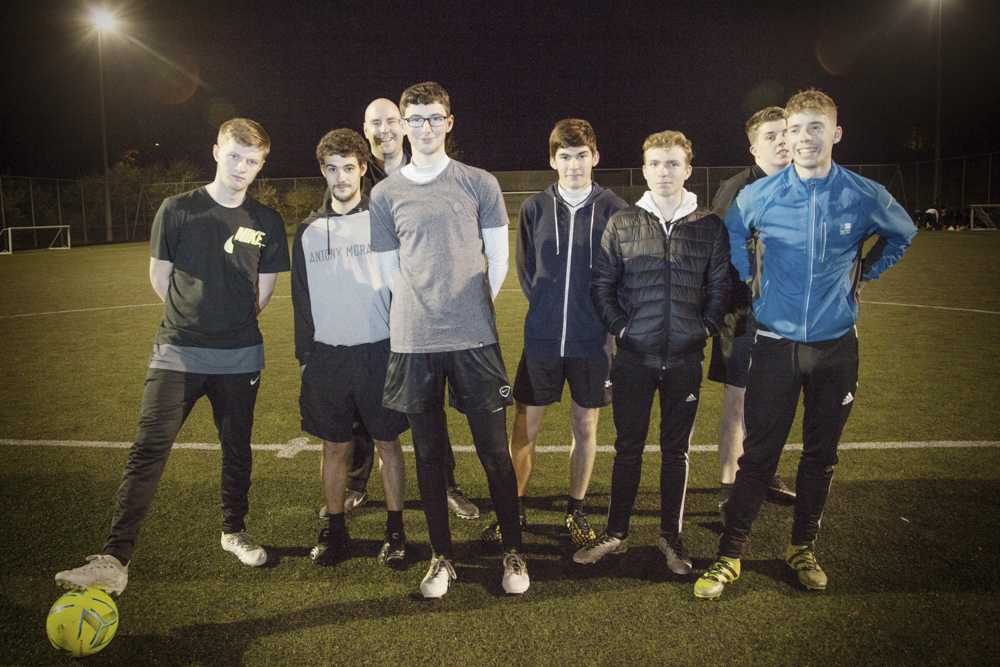 Most people wouldn’t give this group of lads running around plastic cones on a training pitch behind Manchester Communications Academy a second glance, but tonight I’m finding out there’s much more to it.
Most people wouldn’t give this group of lads running around plastic cones on a training pitch behind Manchester Communications Academy a second glance, but tonight I’m finding out there’s much more to it.
In his day job Jordan works for Street League, an organisation that uses sport to re-connect with young people who don’t have a clear employment or education direction.
“We took this group of lads to play in the Manchester International Football Academy,” he says. “It was the first time they’d played as a team and we got beat 8-1. But they wanted to stay together and mithered me to set them up as a regular team.”
That was 18 months ago and at first Jordan wasn’t keen to give up his free time to become their volunteer coach but could see the benefits it brought to these teenagers and young men.
“I ran a similar project in Salford some years ago and that was massively successful at reducing crime rates,” he says. “I’m not saying all these lads would be causing trouble if they weren’t here but it gives them the opportunity to do something different, be part of a team, and a reason to get up on a weekend.”
North Manchester Athletics FC now has a squad of over 25 players aged from 18-23 and has competed in the Manchester Saturday Morning Football League since September.
“We got beat 8-0 in our first game and 7-0 in our second. We beat Partington 5-2 in our third game but it hasn’t been going so well since then.”
“It sounds like the only way is up,” I say. “Do the lads get demoralised?”
“No, not so much,” says Jason. “They’ve stayed together. They’re a tight bunch. We try to sort out our mistakes in these training sessions.”
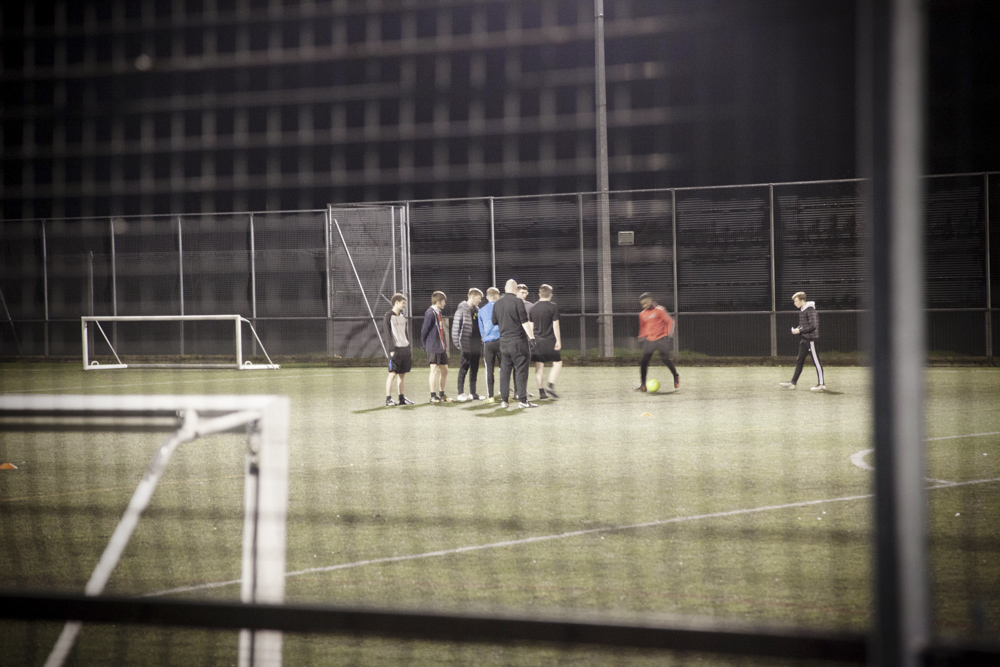 On behalf of the team Jordan successfully applied for funding from Forever Manchester’s Fourteen programme which meets their expenses for half a season. “We pay for this pitch and our match day pitch,” he says, “which includes hot showers after the game. And we need a minibus for the away games. The Fourteen money has helped us massively.”
On behalf of the team Jordan successfully applied for funding from Forever Manchester’s Fourteen programme which meets their expenses for half a season. “We pay for this pitch and our match day pitch,” he says, “which includes hot showers after the game. And we need a minibus for the away games. The Fourteen money has helped us massively.”
And, on top of the football and the benefits it brings, the players have other opportunities too. The team has partnered with North Manchester Sport and Activity Forum which helps with funding applications and, in return, the lads act as volunteers at their events. A win-win.
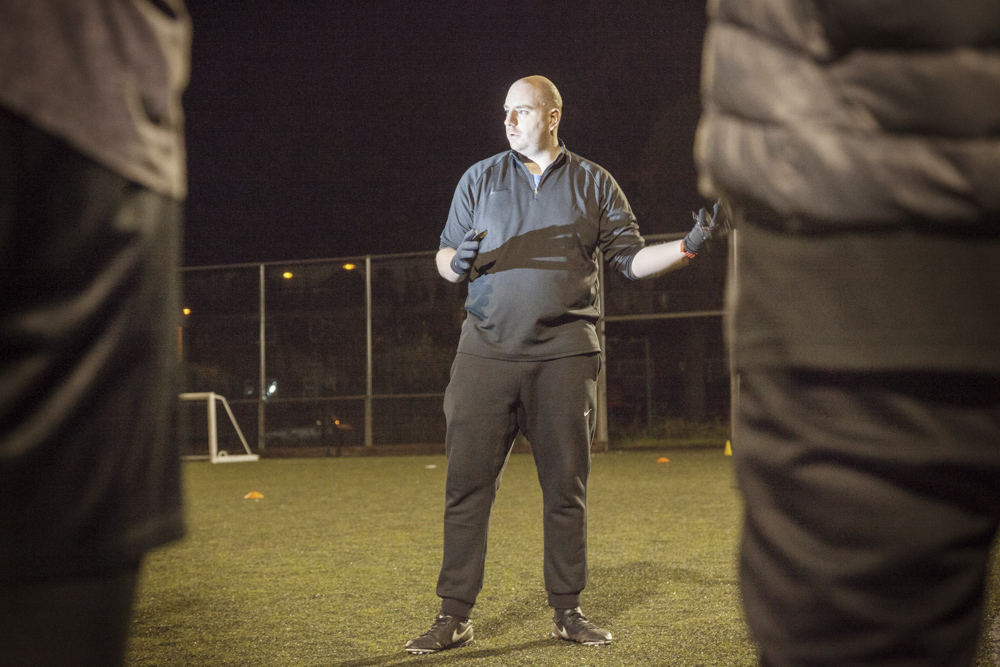 Jordan blows his whistle and brings everyone together. “In terms of Saturday’s game boys, we’re against Arlington at home. We’ve played them before and beaten them. We’re expecting a tough game but we now know their style.
Jordan blows his whistle and brings everyone together. “In terms of Saturday’s game boys, we’re against Arlington at home. We’ve played them before and beaten them. We’re expecting a tough game but we now know their style.
“The plan tonight is to work on the shape of the midfield.”
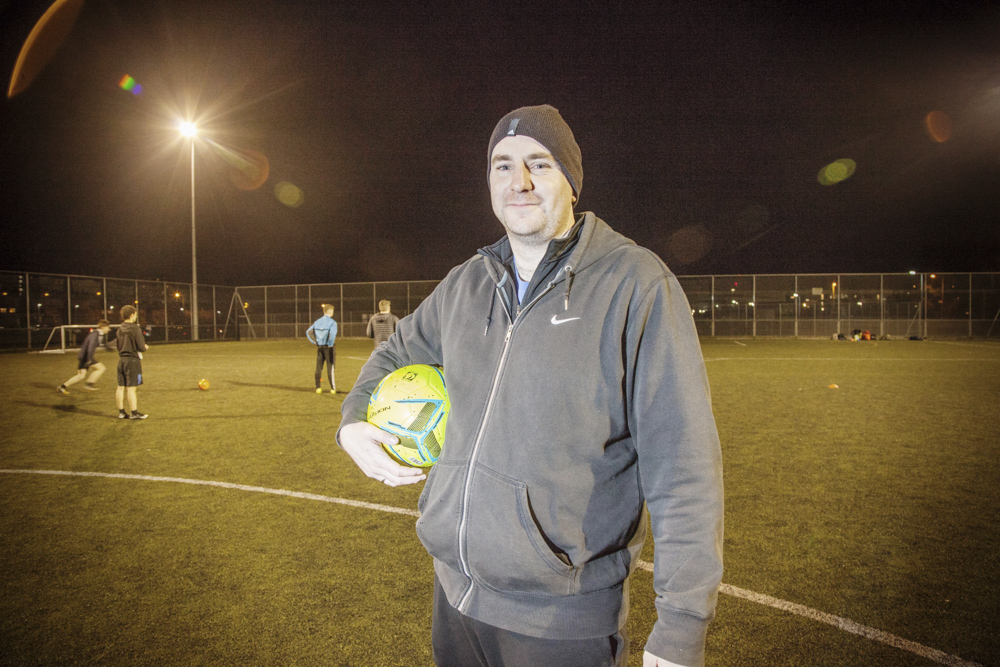
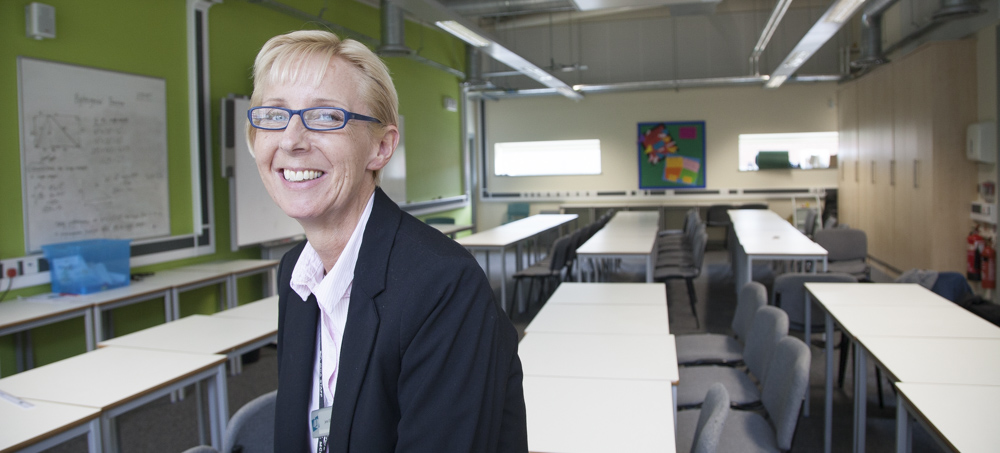 Now Jane is one of a team of 11 whose job it is to support and outreach in to the school’s wider community.
Now Jane is one of a team of 11 whose job it is to support and outreach in to the school’s wider community.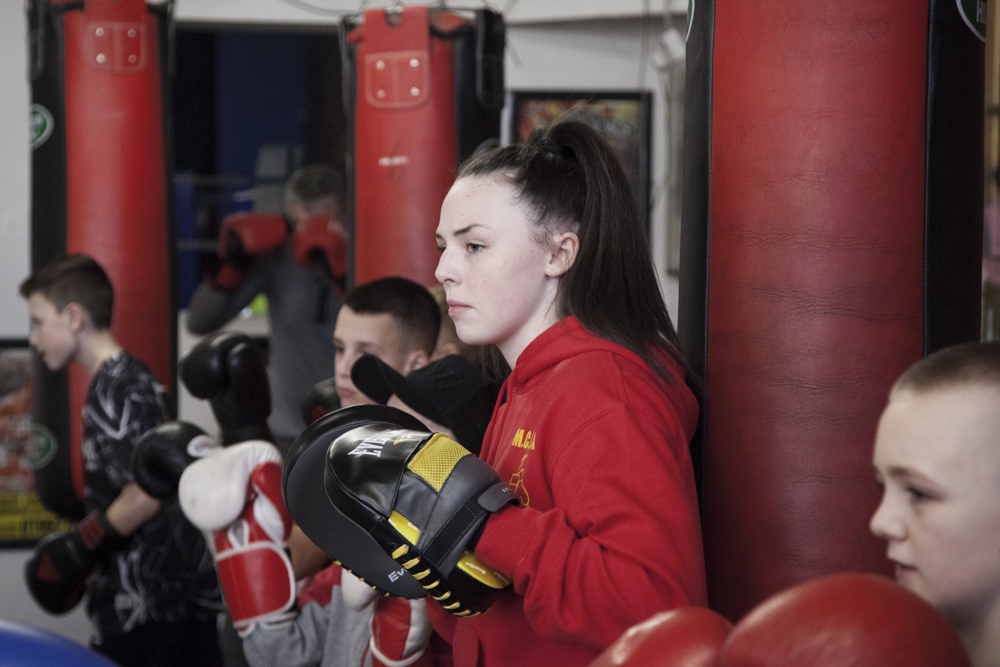 “It keeps you off the street,” Ellie says, emphatically. “You’re here making something with your life rather than out doing nothing. You’re making your future aren’t you?”
“It keeps you off the street,” Ellie says, emphatically. “You’re here making something with your life rather than out doing nothing. You’re making your future aren’t you?”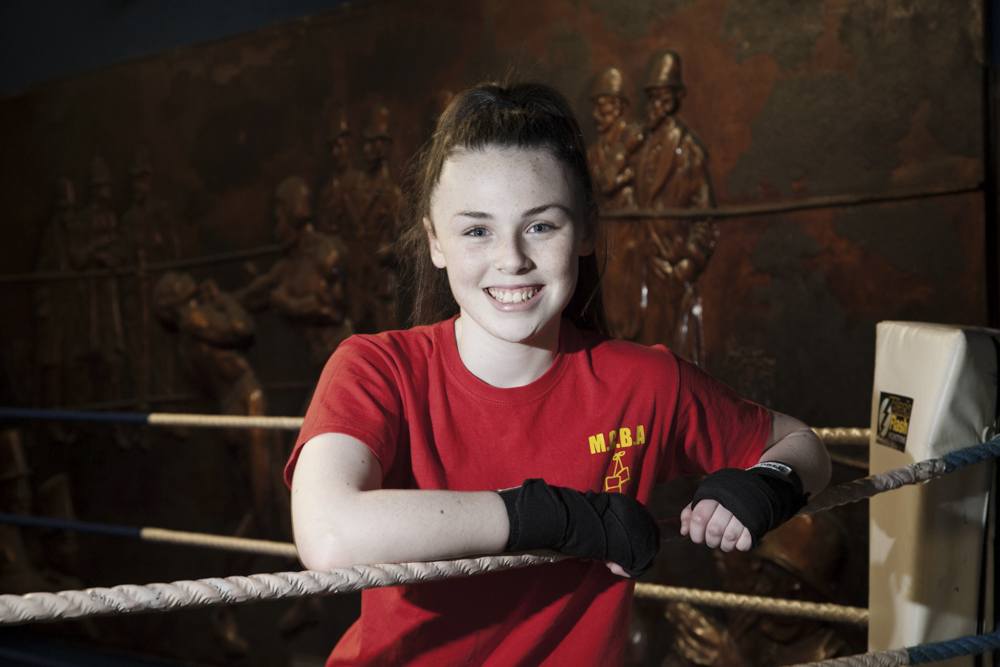 Ellie’s dad is here to pick up her brother. “It’s really improved her confidence,” Lee says. “She’s a totally different person. It’s all she talks about.”
Ellie’s dad is here to pick up her brother. “It’s really improved her confidence,” Lee says. “She’s a totally different person. It’s all she talks about.”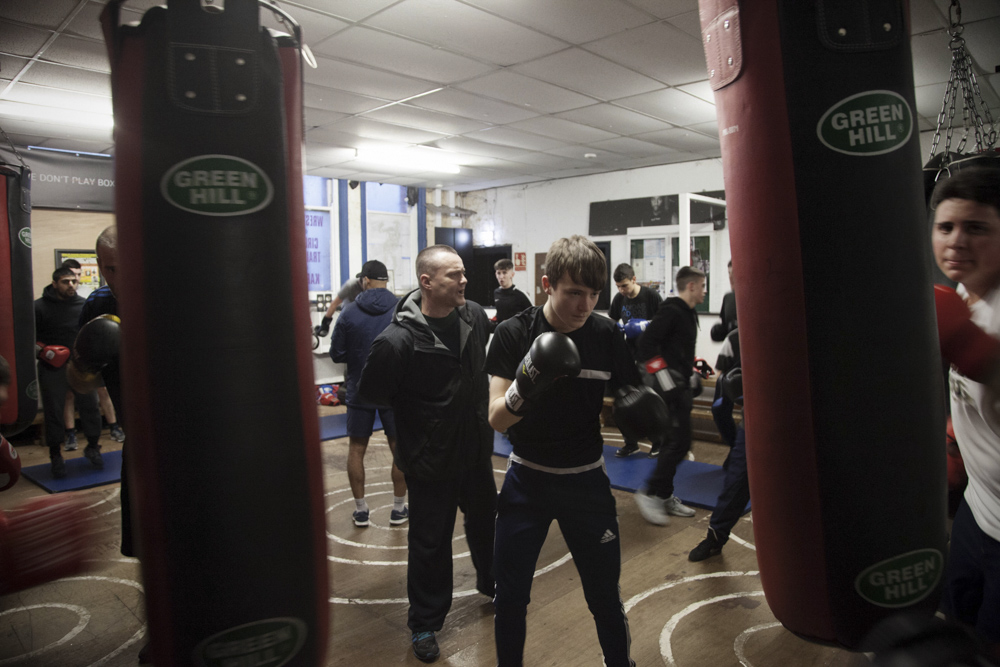 Tommy leads me through the weaving boxers. “Don’t be hitting Len now,” he says to no one in particular. A door on the other side of the gym leads to what looks as if it was once a storeroom. Now laptops sit on a couple of tables.
Tommy leads me through the weaving boxers. “Don’t be hitting Len now,” he says to no one in particular. A door on the other side of the gym leads to what looks as if it was once a storeroom. Now laptops sit on a couple of tables.